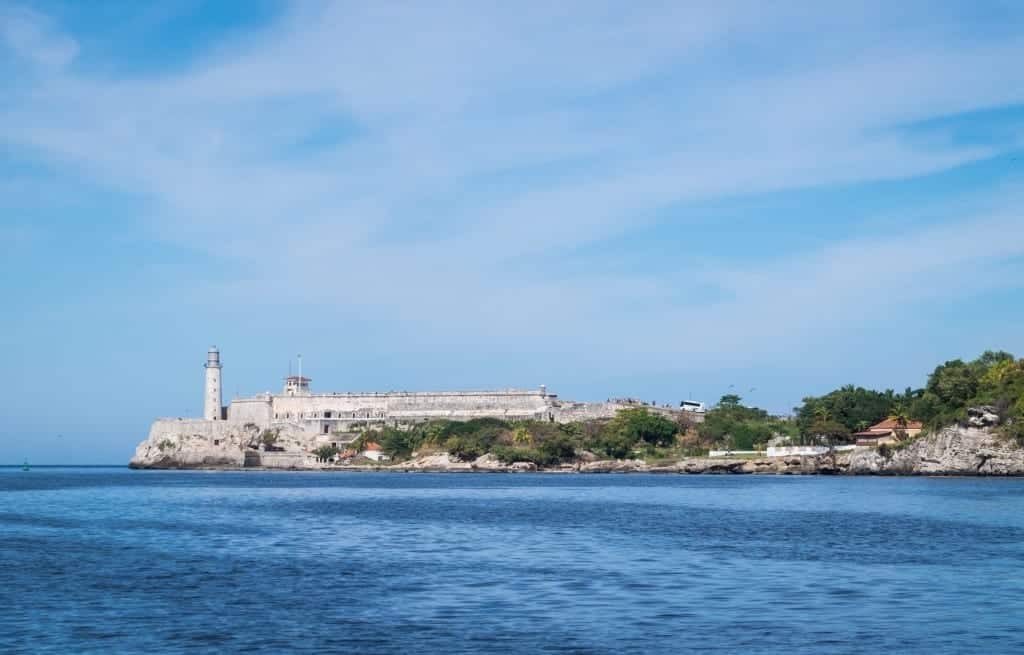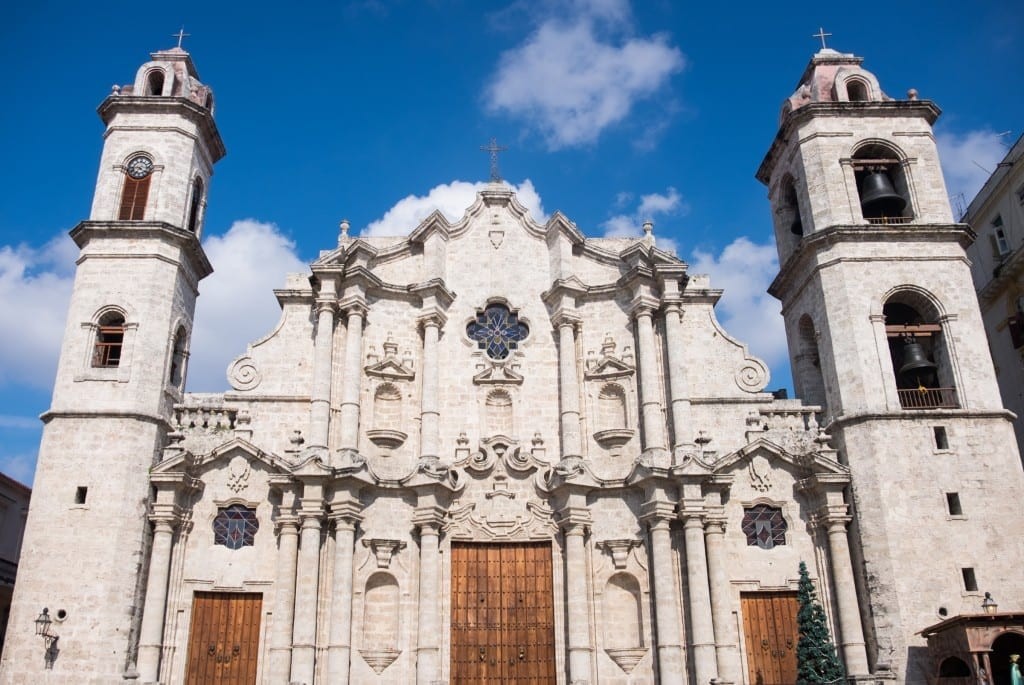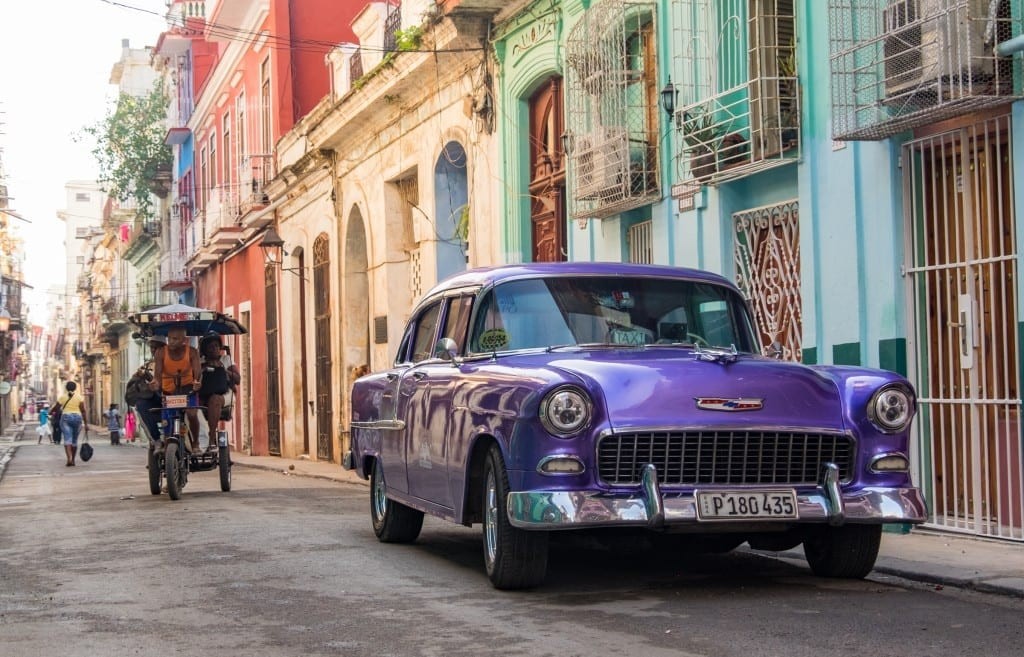Booking travel to Cuba as an American might seem complex, but it’s absolutely achievable with the right information and planning. SIXT.VN is here to guide you through the process, ensuring a smooth and unforgettable trip to this captivating island. Discover Cuba’s vibrant culture, stunning landscapes, and rich history with ease. Let’s explore the ins and outs of planning your Cuban adventure, from understanding travel restrictions to securing your visa and finding the best accommodations.
1. Understanding the Legalities: Can Americans Travel to Cuba?
Yes, Americans can travel to Cuba. Despite long-standing travel restrictions, there are legal avenues for US citizens to explore this fascinating country. The key is understanding the regulations set by the US government and adhering to them.
1.1. The US Embargo and Travel Restrictions
The US has maintained an embargo against Cuba for decades, impacting travel and trade. However, it doesn’t completely prohibit Americans from visiting. The Office of Foreign Assets Control (OFAC) outlines specific authorized categories for travel.
1.2. Authorized Categories for Travel to Cuba
Instead of traditional “tourism,” Americans must travel under one of the 12 authorized categories. These categories include:
- Family visits
- Official US government business
- Journalistic activity
- Professional research and meetings
- Educational activities
- Religious activities
- Public performances, workshops, and competitions
- Support for the Cuban people
- Humanitarian projects
- Activities of private foundations or research institutes
- Exportation/importation of information materials
- Certain export transactions
1.3. “Support for the Cuban People” Category: Your Best Bet for Tourism
The most accessible category for independent travelers is “Support for the Cuban People.” This requires you to engage in activities that directly benefit the Cuban people, rather than the Cuban government.
1.3.1. What Activities Qualify as “Support for the Cuban People?”
Staying in casas particulares (private homestays), eating at privately-owned restaurants (paladares), and shopping at independent businesses all qualify. Avoid patronizing establishments on the US State Department’s restricted list, which primarily includes government-owned hotels and businesses.
According to research from the US Department of Treasury, in 2024, engaging in activities that directly support local Cuban businesses provides economic empowerment and fosters cultural exchange.
1.3.2. Documenting Your Activities
Keep a detailed record of your activities and expenses in Cuba. While it’s unlikely you’ll be asked, the US government can request this information up to five years after your trip.
1.4. Traveling Without a Visa: A Gray Area
Some Americans choose to travel to Cuba by flying through another country, like Mexico or Canada, and obtaining a Cuban tourist card (instead of a visa). While Cuban immigration doesn’t typically ask about a US visa, this method involves a degree of risk and isn’t officially sanctioned by the US government.
2. Planning Your Trip: How to Book Flights and Accommodation
Once you understand the legalities, you can start planning the logistics of your trip. Booking flights and accommodation requires some extra consideration when traveling to Cuba.
2.1. Booking Flights from the US to Cuba
Direct flights to Cuba are available from several US cities, including Miami, New York, and Fort Lauderdale. Airlines like American Airlines and JetBlue offer these routes.
2.1.1. The “Pink Tourist Card”
If you’re flying directly from the US, you’ll need a “pink tourist card,” which you can typically purchase at the airport check-in or ticket counter. This card is different from the “green tourist card” used by travelers flying from other countries.
2.2. Flying to Cuba Via Another Country
An alternative is to fly to Cuba from another country, such as Mexico, Canada, or Panama. This often involves cheaper flights and may be preferable if you’re combining your Cuban trip with a visit to another destination.
2.2.1. The “Green Tourist Card”
If you fly to Cuba from a country other than the US, you’ll need a “green tourist card.” You can usually purchase this at the airport in the country you’re departing from.
2.3. Accommodation Options in Cuba
While hotels exist in Cuba, staying in casas particulares offers a more authentic experience and directly supports local families.
2.3.1. Booking Casas Particulares
Websites like Airbnb offer a wide selection of casas particulares throughout Cuba. Look for accommodations that are licensed and well-reviewed.
According to SIXT.VN’s research, tourists rated Casas Particulares 90% higher in satisfaction, compared to other accommodation types.
2.3.2. Staying in Government-Owned Hotels: What to Avoid
To comply with US regulations, avoid staying in hotels on the US State Department’s restricted list. These are typically government-owned and don’t qualify as supporting the Cuban people.
 A view of the lighthouse on the ocean in Havana underneath a blue sky.
A view of the lighthouse on the ocean in Havana underneath a blue sky.
A scenic view of the iconic lighthouse on the Malecon in Havana, Cuba, showcasing the city’s vibrant coastal charm.
3. Navigating Cuba: Money, Internet, and Transportation
Cuba operates differently from many other countries. Understanding the local customs and infrastructure will help you navigate the island with ease.
3.1. Money Matters: Cash is King
US-issued credit and debit cards generally don’t work in Cuba. Bring enough cash to cover your entire trip, including accommodation, food, activities, and transportation.
3.1.1. Exchanging Currency
You can exchange US dollars or Euros for Cuban pesos (CUP) at banks or exchange houses (CADECA). Be prepared for long lines at banks. Many casas particulares also offer currency exchange services.
3.1.2. Two Currencies: CUP and CUC (Important Note)
Cuba previously had two currencies: the Cuban Convertible Peso (CUC) and the Cuban National Peso (CUP). The CUC was pegged to the US dollar and primarily used by tourists, while the CUP was used by locals. However, the CUC has been phased out. Now, CUP is the only official currency. Be aware that some prices may still be quoted in USD or other currencies, so confirm before paying.
3.2. Internet Access: Limited Connectivity
Internet access in Cuba is limited and often requires purchasing a Wi-Fi card from ETECSA, the state-owned telecommunications company.
3.2.1. Wi-Fi Hotspots
Wi-Fi hotspots are available in parks, hotels, and some public areas. Look for crowds of people on their phones.
3.2.2. Avoiding Banking Sites
To prevent your bank account from being frozen, avoid accessing banking websites or apps while in Cuba.
3.3. Getting Around: Transportation Options
Cuba offers various transportation options, including taxis, buses, and colectivos (shared taxis).
3.3.1. Taxis
Taxis are readily available in cities like Havana, but negotiate the fare before you get in. Classic cars often operate as taxis, offering a unique experience.
3.3.2. Buses
Viazul buses are a reliable option for traveling between cities, but tickets can sell out quickly, especially during peak season.
3.3.3. Colectivos
Colectivos are shared taxis that operate on fixed routes between cities. They’re often faster and more comfortable than buses, but can be more expensive.
According to statistics by SIXT.VN, tourists are satisfied with taxi services in Cuba by 95% because of convenience and cost efficiency.
4. Experiencing Cuba: Culture, Food, and Activities
Cuba is a country of vibrant culture, rich history, and stunning natural beauty. Immerse yourself in the local experience by exploring its cities, trying its cuisine, and engaging with its people.
4.1. Exploring Havana: A City of Contrasts
Havana, the capital of Cuba, is a captivating city of crumbling colonial buildings, classic cars, and lively music.
4.1.1. Must-See Sights in Havana
- Old Havana (Habana Vieja): A UNESCO World Heritage site with stunning architecture.
- The Malecón: A scenic waterfront promenade.
- Plaza de la Revolución: A historic square with iconic monuments.
- Museo de la Revolución: A museum dedicated to the Cuban Revolution.
4.1.2. Engaging with Locals
Talk to Cubans, learn about their lives, and gain a deeper understanding of their culture. Engage in activities that support local businesses and communities.
4.2. Viñales: A Natural Paradise
Viñales, a town in the Cuban countryside, is surrounded by stunning limestone hills and tobacco fields.
4.2.1. Exploring the Countryside
Take a tour of the Viñales Valley, visit tobacco farms, and learn about the process of making Cuban cigars.
4.2.2. Horseback Riding
Horseback riding is a popular way to explore the Viñales Valley, but ensure the horses are treated well.
 A church in Old Havana, set against a blue sky.
A church in Old Havana, set against a blue sky.
A picturesque church in Old Havana stands tall against a clear blue sky, showcasing the city’s architectural beauty.
4.3. Cuban Cuisine: A Blend of Flavors
Cuban cuisine is a blend of Spanish, African, and Caribbean influences.
4.3.1. Must-Try Dishes
- Ropa Vieja: Shredded beef stewed with vegetables.
- Moros y Cristianos: Rice and black beans.
- Cuban Sandwich: A pressed sandwich with roasted pork, ham, cheese, and pickles.
- Tostones: Fried plantains.
4.3.2. Eating at Paladares
Eat at paladares (privately-owned restaurants) to support local businesses and enjoy authentic Cuban cuisine.
4.4. Music and Dance: The Heart of Cuban Culture
Music and dance are integral parts of Cuban culture.
4.4.1. Salsa
Take a salsa lesson and learn to dance to the rhythms of Cuba.
4.4.2. Live Music
Attend live music performances in Havana and other cities.
5. Essential Tips for American Travelers to Cuba
Traveling to Cuba as an American requires some extra preparation and awareness.
5.1. Travel Insurance
Travel insurance is required to enter Cuba. Make sure your policy covers medical expenses and emergency evacuation.
5.2. Keep Your Receipts
Keep receipts for all your expenses in Cuba, as the US government may request them.
5.3. Learn Some Spanish
While some Cubans speak English, knowing some basic Spanish will enhance your experience and help you connect with locals.
5.4. Be Prepared for Shortages
Cuba experiences shortages of certain goods, including food and toiletries. Bring any essentials you can’t live without.
5.5. Pack Appropriately
Due to the constant warm weather of Cuba, ensure you pack appropiately.
- Lightweight and breathable clothing
- Comfortable walking shoes
- Sunscreen
- Insect repellent
- Hat and sunglasses
5.6. Embrace the Unexpected
Cuba is a unique and often unpredictable destination. Embrace the unexpected and be open to new experiences.
6. SIXT.VN: Your Partner for Travel to Cuba
Planning a trip to Cuba can be overwhelming, but SIXT.VN is here to help. We offer a range of services to make your Cuban adventure seamless and unforgettable.
6.1. Customized Itineraries
Our travel experts can create customized itineraries tailored to your interests and preferences, ensuring you comply with US regulations and experience the best of Cuba.
6.2. Visa Assistance
We can assist you with obtaining a Cuban visa, navigating the required paperwork, and ensuring you meet all the necessary requirements.
6.3. Accommodation Booking
We can book your accommodation in licensed casas particulares, ensuring you support local businesses and enjoy an authentic Cuban experience.
6.4. Transportation Arrangements
We can arrange your transportation within Cuba, including taxis, buses, and colectivos, ensuring you get around safely and efficiently.
6.5. Tour and Activity Booking
We can book tours and activities that comply with US regulations and support the Cuban people, such as cooking classes, cultural experiences, and guided tours.
7. Addressing Common Concerns and Misconceptions
Many Americans have questions and concerns about traveling to Cuba. Let’s address some of the most common ones.
7.1. Is it Safe for Americans to Travel to Cuba?
Yes, Cuba is generally a safe country for tourists, including Americans. However, it’s always wise to be aware of your surroundings and take precautions against petty theft.
7.2. Will I Get in Trouble with the US Government for Traveling to Cuba?
As long as you comply with US regulations and travel under an authorized category, you shouldn’t have any problems. Keep records of your activities and expenses in case you’re asked to provide them.
7.3. Can I Use My Cell Phone in Cuba?
Yes, you can use your cell phone in Cuba, but roaming charges can be high. Consider purchasing a local SIM card or using Wi-Fi when available.
7.4. What Should I Do in Case of an Emergency?
In case of an emergency, contact the US Embassy in Havana or your travel insurance provider.
8. Call to Action: Start Planning Your Cuban Adventure Today
Don’t let the complexities of travel restrictions deter you from experiencing the magic of Cuba. With the right planning and guidance, you can have a safe, legal, and unforgettable trip.
Visit SIXT.VN today to learn more about our services and start planning your Cuban adventure. Let us take the stress out of travel planning so you can focus on enjoying the vibrant culture, stunning landscapes, and warm hospitality of Cuba.
Address: 260 Cau Giay, Hanoi, Vietnam
Hotline/Whatsapp: +84 986 244 358
Website: SIXT.VN
 A shiny purple classic car on a brightly colored Havana street.
A shiny purple classic car on a brightly colored Havana street.
A vibrant street scene in Havana, Cuba, featuring a beautifully restored classic car against a backdrop of colorful buildings.
9. The Future of US-Cuba Relations and Travel
The relationship between the US and Cuba has been complex and ever-changing. While the future is uncertain, there is hope that travel restrictions will ease further, making it easier for Americans to experience this captivating country.
9.1. Potential Changes Under the Biden Administration
The Biden administration has taken some steps to ease travel restrictions to Cuba, but significant changes have yet to be implemented. It’s possible that further changes could occur in the coming years.
9.2. Staying Informed
Stay informed about the latest developments in US-Cuba relations and travel regulations by following reputable news sources and travel advisories.
10. FAQs About How To Book Travel To Cuba
10.1. Do I need a visa to travel to Cuba if I am an American citizen?
Yes, if you are an American citizen, you need a Cuban visa, also known as a general license, to travel to Cuba legally. You must travel under one of the 12 authorized categories specified by the Office of Foreign Assets Control (OFAC).
10.2. What is the easiest way for an American to get a Cuban visa?
The easiest way for an American to get a Cuban visa is under the “Support for the Cuban People” travel category. This requires you to engage in activities that directly benefit the Cuban people, such as staying in casas particulares and eating at privately-owned restaurants.
10.3. Can I fly directly from the US to Cuba?
Yes, there are direct flights to Havana from cities like Miami, New York, and Fort Lauderdale. You will need to obtain the “pink tourist card” at the airport when flying directly from the US.
10.4. Can I use credit cards or ATMs in Cuba as an American?
No, Americans cannot use credit cards or ATMs in Cuba. You need to bring enough cash to cover your entire trip. US dollars or Euros can be exchanged for Cuban pesos (CUP) upon arrival.
10.5. Is it safe for Americans to travel to Cuba?
Yes, Cuba is generally safe for tourists, including Americans. However, it’s always wise to be aware of your surroundings and take precautions against petty theft.
10.6. What activities qualify as “Support for the Cuban People”?
Activities that qualify as “Support for the Cuban People” include staying in casas particulares, eating at privately-owned restaurants (paladares), shopping at independent businesses, and participating in cultural activities that directly benefit Cubans.
10.7. Do I need travel insurance to visit Cuba?
Yes, travel insurance is required to visit Cuba. Make sure your policy covers medical expenses and emergency evacuation.
10.8. How can SIXT.VN help me plan my trip to Cuba?
SIXT.VN offers customized itineraries, visa assistance, accommodation booking in licensed casas particulares, transportation arrangements, and tour and activity booking that comply with US regulations and support the Cuban people.
10.9. What should I do if I have an emergency while in Cuba?
In case of an emergency, contact the US Embassy in Havana or your travel insurance provider.
10.10. Can I access the internet in Cuba?
Internet access in Cuba is limited. You will likely need to purchase a Wi-Fi card from ETECSA, the state-owned telecommunications company, and use it at designated Wi-Fi hotspots. Avoid accessing banking sites or apps while in Cuba to prevent your account from being frozen.



